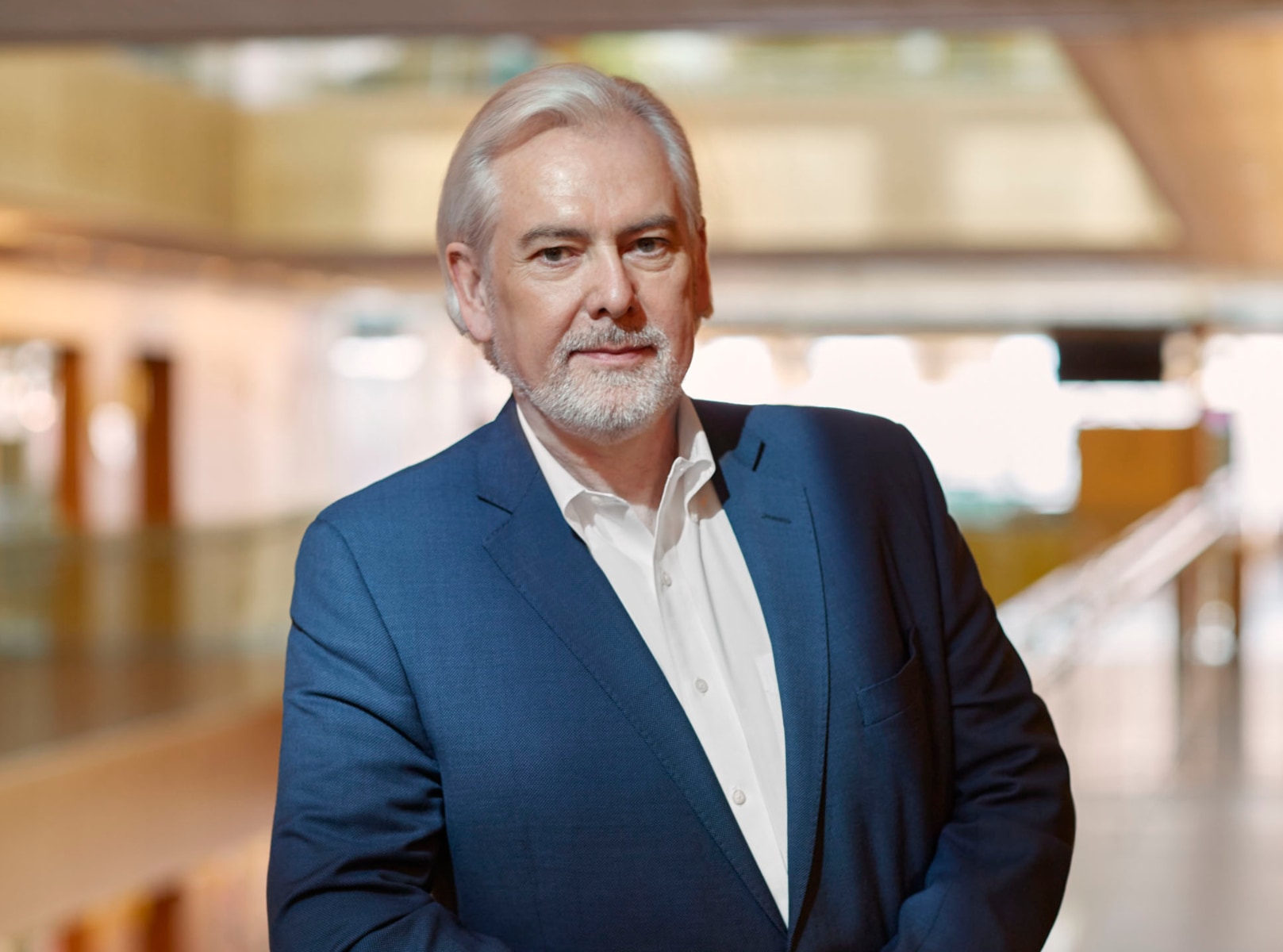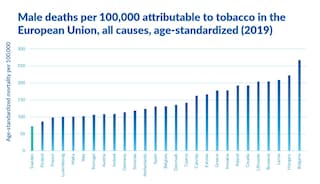Jacek Olczak, Chief Executive Officer of Philip Morris International (PMI), has appealed to governments to recognize the critical role tobacco harm reduction could play in making cigarettes obsolete.
He announced that “cigarettes belong in museums”—but warned current policies to reduce smoking prevalence are not working fast enough and may be prolonging the problem.
Using the World Health Organization’s data, estimates, and methods, along with third-party research, PMI has estimated the potential positive public health impact of the world’s smokers switching from cigarettes to less harmful, smoke-free alternatives.
Our hypothetical model shows that if people who currently smoke switched completely to these products—even if they’re assumed to be only 80 percent less risky than cigarettes—then over their lifetime there’s a potential for a 10-fold reduction in smoking-attributable deaths compared with historical tobacco control measures alone.
Despite the monumental opportunity this would present to global public health, Mr. Olczak highlighted the senseless paradox that smoke-free products are banned in some countries, while cigarettes—despite being far more likely to cause harm—can still be sold.
Although this model has limitations and is built on assumptions, the public health cost of ignoring scientifically substantiated smoke-free products as an alternative for those adults who don’t quit smoking could be immense.
Inaction has consequences
Jacek Olczak, CEO, of Philip Morris International speaks in a room.
Our mission is clear: To reduce smoking by replacing cigarettes with less harmful alternatives.
Cigarettes belong in museums.
Since 2016, my company has fully committed to moving away from cigarettes, the most harmful form of nicotine consumption. We have invested more than 10.5 billion U.S. dollars in developing and commercializing smoke-free products—which today account for nearly 35 percent of our total net revenues.
Frustratingly, our ability to make further progress is being blocked by those who are blindly guided by a desire to see an end to the industry rather than an end to cigarettes. And this is very frustrating.
This, together with an overreliance on the so-called precautionary principle—which some interpret as “better not to do anything until we know everything”—results in government inaction and more of the same.
Today’s environment and rhetoric make it easier for governments and regulators to do nothing on smoke-free alternatives. It’s perceived as safer for political careers to abstain from the debate completely rather than be seen as siding with us.
But, in the end, this is just prolonging the life of cigarettes and risks shortening the lives of those who use them.
For smokers today, inaction is not a neutral position. It is a choice with real-world outcomes.
We are entering what Churchill called “a period of consequences.”
It is no longer a case of if these smoke-free alternatives are better than cigarette smoking.
It is a case of by how much they are better.
Watch the full speech on our YouTube channel.
Rethink Disruption: The impact of inaction
Philip Morris International logo is seen on screen.
Working together toward a common goal
In 2016, PMI committed to moving away from cigarettes. To date, we have invested more than USD 10.5 billion in developing and commercializing smoke-free products—which today account for nearly 35 percent of our total net revenues.
Our mission is to reduce smoking by replacing cigarettes with less harmful alternatives—and, ultimately, to make cigarettes obsolete.
However, Mr. Olczak explained that PMI’s ability to progress on this path is being hampered by a combination of blind opposition from anti-tobacco organizations and governments’ overreliance on the so-called precautionary principle—which some misinterpret as ‘better not to do anything until we know everything.’
That’s why he called on governments around the world to follow the leads of countries like Sweden and Japan—as well as the U.K.—and adopt policies that provide adult smokers who don’t quit with a wide range of less harmful alternatives to continued smoking.
Combined with efforts to encourage people to quit smoking, this will enable hundreds of millions of adult smokers to make a better choice and help society turn cigarettes into a historical artifact.
PMI’s CEO also challenged anti-tobacco organizations to update their thinking, stop blocking innovation, and work towards the common goal of delivering a smoke-free future as quickly as possible.
Tobacco harm reduction in action
The merits of embracing tobacco harm reduction are clear to see.
In Sweden, mass uptake of snus over several decades—particularly among men—has coincided with the country having one of the lowest smoking rates in the developed world.
Significantly, the EU banned snus—an oral smokeless tobacco product placed between the lip and gums—30 years ago, but Sweden retained an exemption from the ban.
That decision has likely contributed to putting Sweden on the verge of becoming a “smoke-free” country. Public health data reveal that the number of daily smokers in Sweden, aged 16 to 84, dropped from 16.5 percent in 2004 to 5.8 percent in 2022.
And, in 2019, the country recorded the lowest tobacco-related mortality rate among men in the EU.1
Meanwhile, in Japan, cigarette sales began falling five times faster than before after heated tobacco products became established in the market in 2017.
An independent study carried out in 2019 by researchers working for the American Cancer Society found that heated tobacco products “likely reduced cigarette sales in Japan.”2
Mr. Olczak appealed for governments to take seriously data that supports the critical role of tobacco harm reduction, end their “policies of inaction,” and help consign cigarettes to the history books.
“It’s time to try something else,” he said.
It's time to try a more inclusive and innovative approach; one that has been proven in several countries around the world and that has the potential to significantly accelerate an end to cigarettes.







